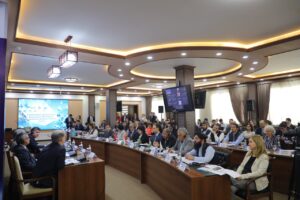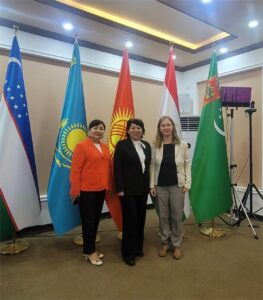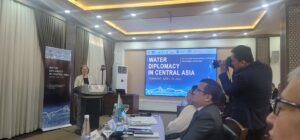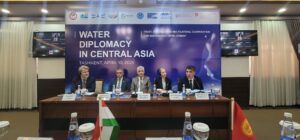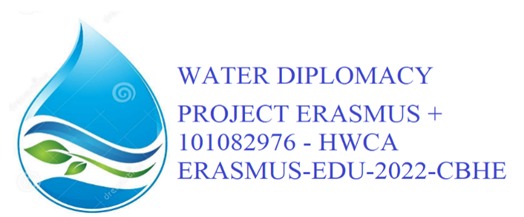The Institute for Strategic and Interregional Studies under the President of the Republic of Uzbekistan hosted the international scientific and practical conference “Water Diplomacy in Central Asia: Trust, Dialogue and Multilateral Cooperation for Sustainable Development.” on April 10, 2025. The event brought together over 100 participants from more than 10 countries, including representatives of states sharing the basins of the two largest rivers in Central Asia — the Amu Darya and Syr Darya — as well as 15 international and regional organizations, experts, and researchers from academic institutions across Asia and Europe.
The conference convened representatives from academic and scientific communities, government bodies, and international organizations from Uzbekistan, Kazakhstan, Kyrgyzstan, Tajikistan, Turkmenistan, and European countries such as Germany, France, and the Netherlands. Among the speakers and guests were representatives of universities, relevant ministries, research institutes, and diplomatic missions.
Welcome addresses were delivered by:
- Bahadir Mirzaev, Rector of TIIAME National Research University,
- representatives of the Ministry of Water Resources and the Ministry of Higher Education, Science and Innovation of the Republic of Uzbekistan,
- H.E. Mr. Toivo Klaar, EU Ambassador to Uzbekistan,
- and representatives of the French diplomatic mission and international academic organizations.
Participants discussed pressing issues related to regional water cooperation, the role of water diplomacy in achieving sustainable development, and the need to strengthen trust and deepen dialogue between countries in the region. Particular attention was paid to transboundary water management and sustainable practices in the context of climate change.
Professor Janara Baitugolova, project coordinator of HWCA, noted in her interview that the main goal of the Erasmus+ HWCA project is to create a unified curriculum for all Central Asian universities. This would facilitate academic exchange among students and faculty and help train qualified specialists in water diplomacy and water resource management. Because it is crucial to foster an academic and educational dialogue that will serve as a foundation for negotiations built on trust, cooperation, and good neighborliness. This is essential for addressing and resolving water-related issues.
The event featured eight parallel sessions, covering a broad range of topics:
- environmentally sustainable water resource management,
- energy efficiency and renewable energy,
- innovative technologies in agriculture,
- geospatial systems and cadastral management,
- green economy initiatives in the water sector,
- land reclamation and on-farm water management.
Among the session participants were professors and researchers from the University of Tehran (Iran), the Technical University of Berlin (Germany), Wageningen University (Netherlands), and other international academic institutions.
The international conference served as a vital platform for advancing sustainable water cooperation and strengthening academic and scientific ties between Central Asian countries and their European partners.
